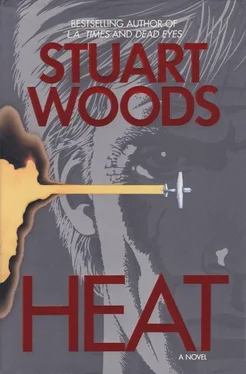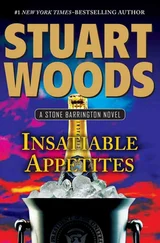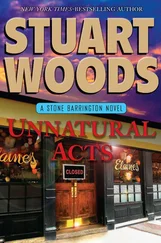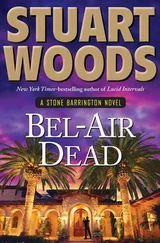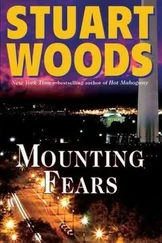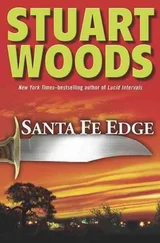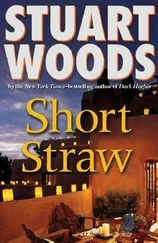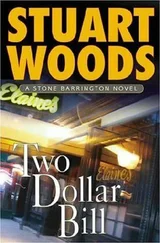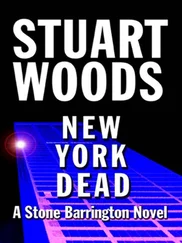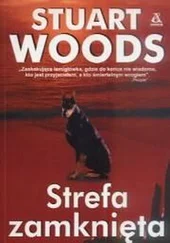“Okay, looks like we’re all finished here. I’ll pack up and go; you and your lady have a good weekend. And you take care of yourself, Jess.”
They shook hands, and Jesse left. He walked to Rockefeller Center and found Jenny gazing up at the huge Christmas tree.
“Isn’t it the most spectacular thing you’ve ever seen?” she asked.
“It certainly is. You hungry?”
“Starved.”
They found a table at the skating rink restaurant, and Jesse heard the story of her morning. He kept his appointment at two, and left with assurances that orders for chipboard and plywood would be placed almost immediately.
Back at Rockefeller Center, he made sure he wasn’t still being followed, then went back to the State Department office. He walked back down Fifth Avenue toward his hotel, the new passports in his pocket, regretting that he couldn’t have taken the two million dollars and Jenny on the next plane to South America. At least, now, he had an out that included the two people in the world who were most important to him.
As that thought came to him he stopped dead in his tracks. A woman and a little girl were just turning into a shop. He watched them through the window for a moment and convinced himself that the child was not his own Carrie; she was too tall and her hair was too long. The woman looked oddly familiar, though. He walked back to the hotel, remembering that there was a third person, somewhere, who was terribly important to him, and that his chances of ever seeing her again were just about nil.
Pat Casey sat in Kurt Ruger’s office at the bank and watched the young man on the sofa. He had trained the man himself, and he felt proud.
“The two subjects made the plane on schedule,” the young man, whose name was Ken Willis, said. “At La Guardia they got their luggage and took a cab to the Hotel Roosevelt and checked in. Barron put the briefcase in the hotel safe, just as you said he would. He and the woman stayed in their room until dinnertime, then left the hotel and went to a restaurant on West Sixty-Seventh Street. They were back at the hotel and in their room by eleven o’clock.”
“Tell me about the next day,” Ruger said.
“Barron was earlier than I’d expected,” Willis said, glancing at a notebook. “He picked up the briefcase at the front desk at eight o’clock and walked uptown. He seemed to be on a sort of sightseeing trip.”
“What sort of a sightseeing trip?” Casey asked.
“He walked uptown to Central Park and through the zoo, then he started down Fifth Avenue. At Rockefeller Center he watched the skaters for a couple of minutes, then he went into the NBC building and took the elevator to the roof.”
“Good place for a meet,” Ruger said. “Did he speak to anybody?”
“No, sir.”
“Did he bump into anybody, even look at anybody?”
“No, sir; he seemed preoccupied with sightseeing.”
“Then what?”
“He did some more walking; went into Sak’s and bought some things, apparently for the woman and a little girl, also some neckties. Then he walked up Fifth to number 666 and arrived at the office exactly on time. I waited in the hallway, and when he came out I asked him for the briefcase. He insisted on calling the chief before he’d give it to me.”
“From the time Barron picked up the briefcase at eight o’clock until he turned it over to you, was he ever out of your sight? Even for a few seconds?”
“No, sir,” Willis lied solemnly.
“Did you follow him anymore after that?”
“No, sir; I went straight to the airport, as I was instructed to do.”
Casey spoke up. “I only wanted to be sure he delivered the case; I saw no point in any further surveillance. If he’d done something untoward, we’d have heard about it.”
Ruger nodded. “Let me have the briefcase,” he said to Willis.
The young man placed the aluminum case on the desk.
Ruger worked the two combination locks, opened the case and removed two sheets of papers. “The receipt is in order,” he said, then he examined the other sheet. “Enzberg says that Barron behaved correctly and expressed no curiosity about the transaction.” He looked at Casey. “Pat, do you have any other questions for Ken?”
“Nope,” Casey replied.
“That’ll be all, Ken,” Ruger said. “You did a good job.”
“Thank you, sir,” Willis said, and left the office.
“Are you pleased, Pat?” Ruger asked.
“I certainly am,” Casey replied. “He did as he was asked to do, and I’m particularly pleased that he wouldn’t give Willis the briefcase until he’d called me.”
“Yes, I agree that was kind of a bonus. Shows he’s both a thinker and that he’s of a cautious nature.”
“I think Jesse Barron is quality material,” Casey said.
“What is Jack Gene’s take on him?”
“You know Jack Gene; he relies more on intuition than judgment.”
“And what did his intuition tell him?”
“That Jesse is covering up something.”
Ruger chuckled. “Who isn’t? Did you pick up anything like that on the polygraph?”
“Not really.”
“What does that mean?”
“Well, I got the impression that he lied about a couple of things there was no need to lie about. He could have been planting a lie or two to cover a real lie.”
Ruger frowned. “If he actually did that, then we have something to worry about.”
“I know. Nobody of Jesse’s background — his stated background — is going to know anything about defeating a polygraph.”
“Pat, if you were Jesse and you were a fed, how would you have played the New York delivery?”
“I’d have tried to find out what was in the briefcase,” Casey replied. “But there’s no indication that he tried, and there’s no indication that he even contacted anybody before he delivered the case.”
“But if you were a cop trying to gain our confidence, might you just do as you were told?”
Casey shook his head. “Maybe, but I think the briefcase would be too much of a temptation.”
Ruger took a magnifying glass from a desk drawer and began examining the case closely. Casey joined him, switching on the desk lamp. “You see any sign of attempted entry?”
“Nope, not a thing.”
“Could they have X-rayed it?”
“The lead foil lining would have obscured the contents, and the combination has to be reset after the case has been opened twice. If they’d cracked it, you wouldn’t have been able to open it with the same combination.”
“What do you think our recommendation to Jack Gene should be?”
“Well, Jesse has had as much or more scrutiny as anybody else who’s joined us, and he’s passed with flying colors so far. Still, as long as Jack Gene has doubts, I don’t think we want to go the whole hog.”
“I agree. What should we do then?”
“I’ve already done it.” He explained his action to Ruger. “All we have to do is wait.”
Jesse had been back from New York a week when Pat Casey called and invited him to do some shooting on a Saturday morning. Jesse wasn’t sure what Casey meant by shooting, but he accepted.
Casey picked him up mid-morning and drove toward the mountain. They passed the church and started to climb and, near the top of the mountain, shortly after passing Coldwater’s house, they turned right onto a dirt road. They emerged from the trees into a clearing that had, apparently, been scraped into the side of the mountain by a bulldozer. To Jesse’s left, some one hundred feet away, was the exposed side of the mountain, with many pockmarks and a rail system for transporting targets to and fro. They got out of the squad car, and Casey went to the trunk.
Читать дальше
